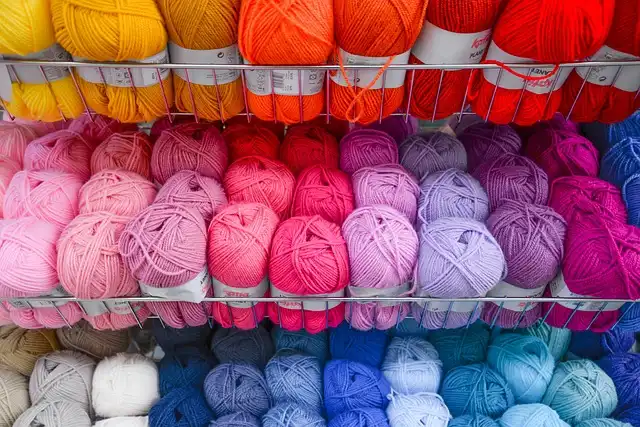Spiber’s Brewed Protein™: Revolutionizing Fashion with Sustainable Biotech

Spiber, a Japanese biotech firm, is pioneering Brewed Protein™, a sustainable alternative to traditional materials. Their innovative protein aims to transform the fashion industry and enhance supply chains using microbial fermentation.
Spiber is a Japanese biotechnology business, and we make a synthetic healthy protein called Brewed Healthy protein ™. Also though the company started with a goal to replicate crawler silks, the healthy protein that we produce now is not that– it’s our very own special DNA style, which is suitable for apparel products.
The Origins of Spiber and Brewed Protein™
That inspired me, and I entered his laboratory in 2004 and started my very own research study at the same time, with each other with my co-founder Junichi Sugahara, where we looked to replicate the crawler silk protein with microbial fermentation. In 2007, we was successful in duplicating a really little amount of spider silk completely in the laboratory. And that’s when we developed the company.
When we talk concerning enhancing and expanding the international supply chain, we’re referring to Spiber’s more comprehensive vision of creating a sustainable, decentralised production community for Brewed Healthy protein ™ materials.
Enhancing the Global Supply Chain with Sustainable Protein
It sounds exciting, yet it can all be difficult to understand if you aren’t a biochemist. I talked to Spiber chief executive officer Sekiyama about this fibre, the collaboration with Iris van Herpen and exactly how his business plans to enhance style’s supply chain and “help keep the tranquility”.
We’ve actually been dealing with Japanese couturier Yuima Nakazato given that 2019. But we feel it is actually time now to increase our company due to the fact that we strongly believe our healthy protein can serve as a service for numerous issues the apparel industry is encountering.
Spiber’s Expansion and Market Readiness
Even more than 15 years in, Spiber is only simply getting prepared to take Brewed Protein ™ out of the lab and into the mass market. In 2022, the company began operations at the world’s initial industrial protein polymer manufacturing plant in Thailand, and last year it established its very first overseas branch, Spiber Europe, to accelerate service development and sales in the region.
There are likewise two wedding dresses, one of which is created from a manufactured bio-based protein by Spiber, a company with large passions to curb the style industry’s influence.
In 2022, the business started operations at the globe’s initial commercial healthy protein polymer production plant in Thailand, and last year it developed its initial overseas branch, Spiber Europe, to speed up company development and sales in the area.
We estimate there are a number of billion tonnes of under-utilised biomass resources worldwide. By leveraging these effectively– without needing to increase farmland or increase animals manufacturing– we can scale Brewed Healthy protein ™ for usage in textiles, food active ingredients and more. Because healthy protein is a high-value item with considerable applications, and due to the fact that microbial fermentation is very efficient when optimised with our proprietary modern technology, our team believe this approach can sustain the development of a totally new lasting sector.
Biotechnology’s Role in Global Peace and Sustainability
I think that biotechnology has the possible to diversify and enhance the global supply chain, which is important to keep peace in the world. That takes a lengthy time. Take, for example, petrochemical fibers: it took over 100 years for them to be industrialised. We don’t have much time left. Seeing all these ecological problems coming up and the global disputes … So considered that situation, we want as lots of companies as feasible to use Spiber in a short time frame. And our team believe that working with haute couture brand names helps in that objective to penetrate the supply chain.
When we chat regarding reinforcing and branching out the international supply chain, we’re referring to Spiber’s more comprehensive vision of creating a lasting, decentralised production ecosystem for Brewed Protein ™ materials., agricultural waste and used bio-based fabrics, from numerous areas around the world, and using that as feedstock to produce Brewed Healthy protein ™ polymers.
Dutch couturier Iris van Herpen is familiar with material technology. Over the years, she has presented couture collections including outfits made of banana leaf and chocolate beans, while she was one of the initial developers to try out 3D printing. The collection she just revealed, labelled Sympoiesis, features a series of dresses constructed from choice fibers, consisting of a “living gown” made of 125 million bioluminescent algae. There are additionally 2 bridal gown, one of which is created from a synthetic bio-based protein by Spiber, a firm with huge ambitions to suppress the fashion business’s impact.
Scaling Brewed Protein™ Production
Back after that, we were not able to generate Brewed Protein ™ in huge amounts. As of February 2025, the plant has produced around 200 tonnes of protein polymer, with strategies to scale up production to 500 tonnes per year in the coming years. And we have partnerships in location with global yarn and textile producers, which have assisted create the fibre (some can create 100 per cent Brewed Protein ™ fabrics) and increase our reach.
Without a doubt, crawler fibre. We were speaking with some associates in the laboratory, and someone pointed out that spider silk is a really tough and great material– hence Spider-Man. Its sturdiness per weight is, I think, 7 times more than [heat-resistant synthetic fiber] Kevlar. Nevertheless, a couple of years after we founded the company, we found that the spider silks have a physical home called super contraction. That means that when it touches water, it reduces a whole lot, which isn’t actually helpful when you are trying to make clothes. Imagine getting caught in the rainfall and your coat begins to diminish. So we had to go back to the DNA style and work on producing a brand-new kind of DNA that can actually be made use of in the fashion industry. So even though the company began with a mission to duplicate spider silks, the protein that we generate now is not that– it’s our own unique DNA style, which is suitable for apparel products.
From Spider Silk to Brewed Protein™
Along with our existing manufacturing and rotating operations in Thailand and Japan, we’re checking out the facility of polymer manufacturing and rotating facilities outside of Japan. This will help shorten preparations, minimize dependence on any type of solitary location and make our materials extra accessible around the world.
The Japanese biotechnology company was established in 2007 by Kazuhide Sekiyama and Junichi Sugahara, after they handled to successfully grow spider silk in a lab at Keio College. Today, it is experts in Brewed Protein ™, a fibre made from fermented sugarcane, which the company says is naturally degradable and recyclable because it can be broken down right into nutrients and recycled as feedstock for the manufacturing of brand-new healthy protein with the fermentation process.
Spiber is a Japanese biotechnology business, and we make a man-made protein called Brewed Protein ™. The order these amino acids come into– as well as their length– specifies the difference in between attributes like your muscular tissues, skin and eyes, and any type of other protein. We have actually come up with a means to produce a protein-based product in a laboratory via what we call a microbial fermentation process, which is generally how you also make yoghurt or cheese.
1 biotechnology2 Brewed Protein
3 microbial fermentation
4 Spiber
5 sustainable fashion
6 textile innovation
« Nike Restructuring: Sports Focus & Revenue ChallengesPrime Day 2024: Online Spending & Back-to-School Boom »
